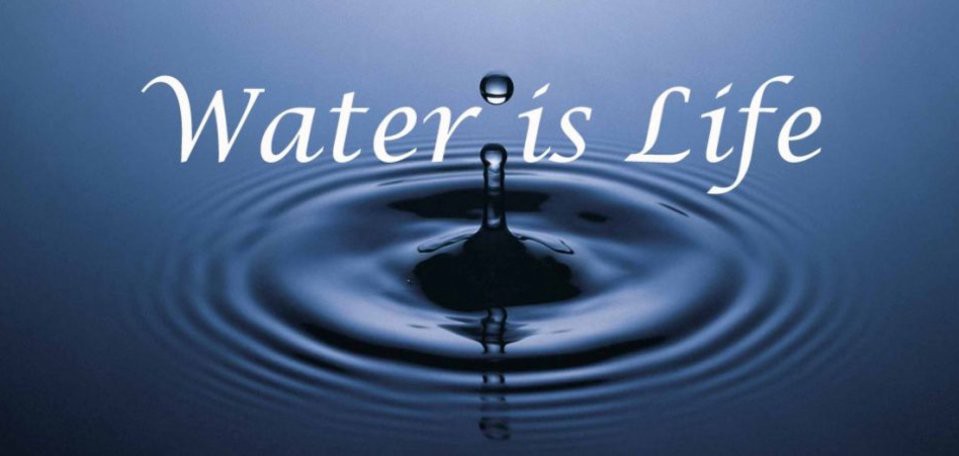IWater falls from Heaven as one of the five so called ‘weather ch’i’, in the form of fog, rain, snow, hail or frost. Sometimes wind, heat, cold and sunshine are included in this list. The weather ch’i bring with them some of the properties of Heaven (or t’ien in Chinese) as they fall on the Earth (or ti in Chinese). Water (along with Wind) therefore forms a bridge between Heaven and Earth. This is part of the reasoning behind why feng shui is represented by the characters ‘wind’ and ‘water’.
When water reaches Earth it often falls upon high mountains, whose shapes make up the ‘dragons’ in the landscape. The interaction between these ‘dragons’ and the falling water are key to feng shui. As everyone knows, the water penetrates into the soil where it exists, and then flows as underground seepage till it either fills vast underground reservoirs, situated in porous rock, or returns to the surface.
From there it often bubbles to the surface at the headwaters of streams where it begins its long hard return to the sea, assuming that it does not evaporate in one form or another on the way. Each feng shui concept can be fitted into the natural landscape and this hydrological cycle.
Flood And Stagnation
Even sha or noxious vapours are part of this cycle, quite an important part it seems if you analyse the Trigram tui. Water trapped in marshes or
stagnant lakes putrefies vegetation and gives off sha. This is one of the reasons why the digging of efficient drainage canals was of such importance in cultures where rice growing necessitated flooded paddy fields for much of the year. The Chinese living under these conditions could not but be aware of the fact that sluggish non-flowing water meant more than just a bad smell. It meant decay and disease, and a slowdown in life’s rich pattern as well.
On another level spiritual well-being and agricultural wealth were both tied to the thriving or stagnation of the fields. It is a common feng shui saying that doubling of the food on the table, by locating a large mirror opposite the dining table increases the wealth of the household.
In the lower reaches of the river, where there are endless floodplains covered with meandering rivers and ox-bow lakes, the ever present threat of massive flooding made the local population acutely aware of the power of the water dragons embodied in the rivers. If the water dragons lose their humour and burst their rather low banks, then no one was safe.
For many city dwellers the connection between spiritual and agricultural well-being has been severed generations ago. So now this concept is seen as a poetic conceit rather than a real connection. Make no mistake, this connection is as real as it was on the day your ancestor or mine packed up his hoe and trudged into the nearest city. Feng shui aims to re-unite these two energies, to give us the option of again improving our well-being, our clarity and quality of life, our health, and our wealth (or if you like, our store of rice).
The mechanics still work, though now they are little understood except by feng shui masters. The small stream cultivated to pass by your door in a left to right direction, or the gutter which now discharges its load of water to the North-east of your house rather than directly out the door, do make real changes to your energy levels and they do make real contributions to your well-being.
The Secret Life Of Water
The much maligned Austrian scientist, Viktor Schauberger (1885-1958), spent his life investigating the less commonly know properties of water and air. In some ways, he seems to have stumbled upon some of the key connections between water and human life, which have been ignored by Western science but utilised by feng shui.
For Schauberger, both water and air were living elements, essential to the well-being and existence of mankind. He was very concerned with the way water, or indeed any fluid and air, moves. He found that instead of water creating straight channels for itself, and flowing the ‘shortest distance between two points’, it chooses to flow in a spiralling,
meandering motion which automatically creates a longer winding path. Such motion has been referred to as a longitudinal vortex.
Schauberger found that by inserting an egg-shaped item into a river, that it would impart a spin to the water rushing by, creating the all-important vortex which then substantially improves the flow of the river, scouring out unnecessary mud from the bottom, and filling the water with health-giving oxygen.
Despite many attempts by Western engineers to straighten the paths of natural rivers to fit in with their square ‘noughts and crosses’ town plan grids, the river will eventually break out of its straight-jacket and resume its meandering course. Of course feng shui believes in meandering rivers, which do not rush straight up to a site. Many other parallels can be drawn between Schauberger’s mechanics and the theories of river flow in feng shui.



